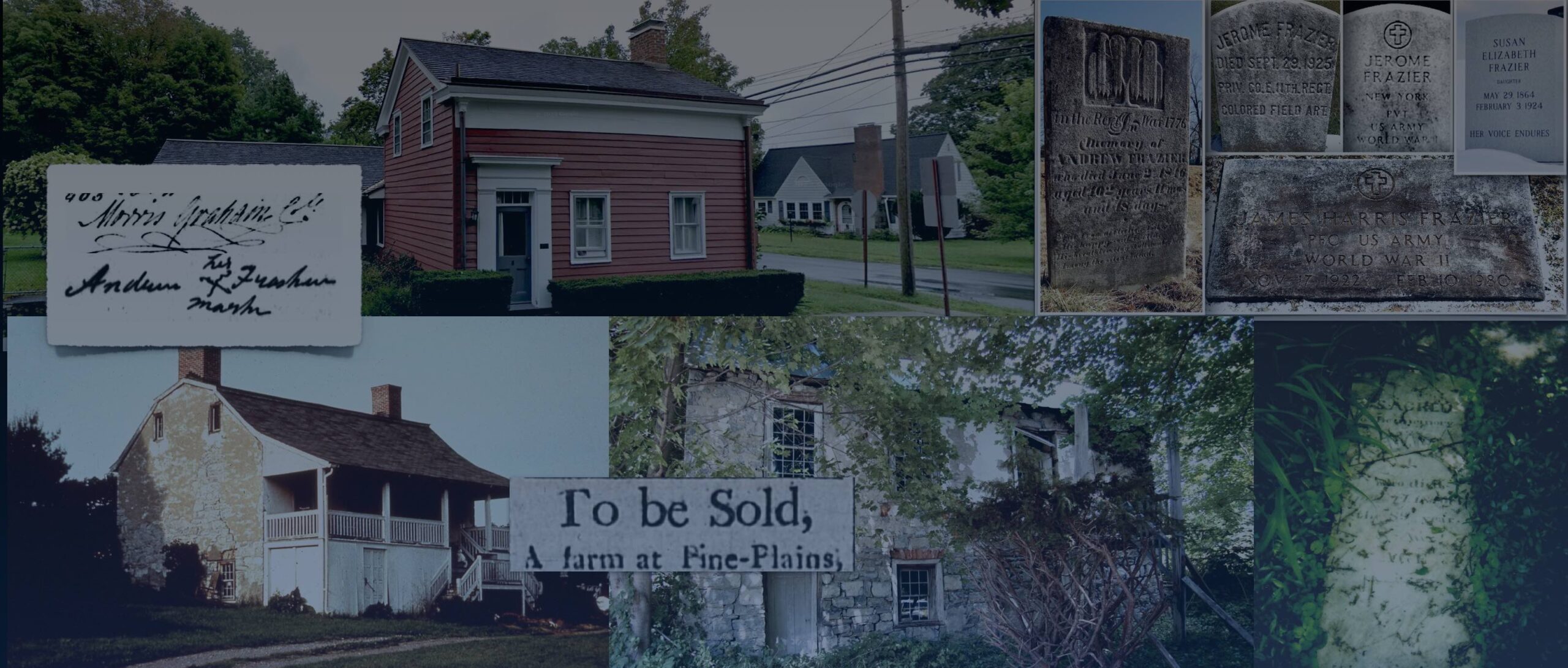Reversal of Fortune of Enslaver & Enslaved in the Settlement of Pine Plains: The Local Impact of the Revolutionary War
Saturday, November 18th, 1:00 pm. Pine Plains Free Library
This is the story of two men involved in the settlement of Pine Plains: Morris Graham and Andrew Frazier. Both men were born on the Manor of Morrisania (today the Bronx). Both relocated simultaneously to northern Dutchess County in the 1760s to settle what would become Pine Plains. Both served in the Revolutionary War. But each was born into starkly different worlds.
Col. Morris Graham was born White, free and wealthy of two established families — the Morris and Graham families of New York and New Jersey. The other, Andrew Frazier, was a Black man, possibly African and European, whose birth was noted in the Graham family Bible as enslaved persons often were. Almost certainly born enslaved, he ultimately came to be free after the war. The Revolutionary War, its crushing personal costs, shifting sentiments and no doubt the capacity of each man saw their relative reversal of their fortunes.
In a story that reveals what the revolution was both giving birth to — and extinguishing — we will look at the short legacy of Graham, and the longer powerful legacy of Frazier who came to be known as the “ancestor.” A descendant of Andrew Frazier served in every major war through World War Two. Among his descendants is the first Black woman allowed to teach White students in New York City in 1896/. Susan Elizabeth Frazier was a prominent leader of the Women’s Auxiliary of the Harlem Hellfighters in World War One.
Few stories are able to so dramatically and personally portray the profoundly revolutionary aspects of the founding of the United States and reveal the very different character of what became Pine Plains in the19th century when compared to its colonial origins.
Bill Jeffway is the Executive Director of the Dutchess County Historical Society, serves on the research committee of Celebrating the African Spirit, and serves on the advisory committee of the Vassar College Inclusive History Initiative.

